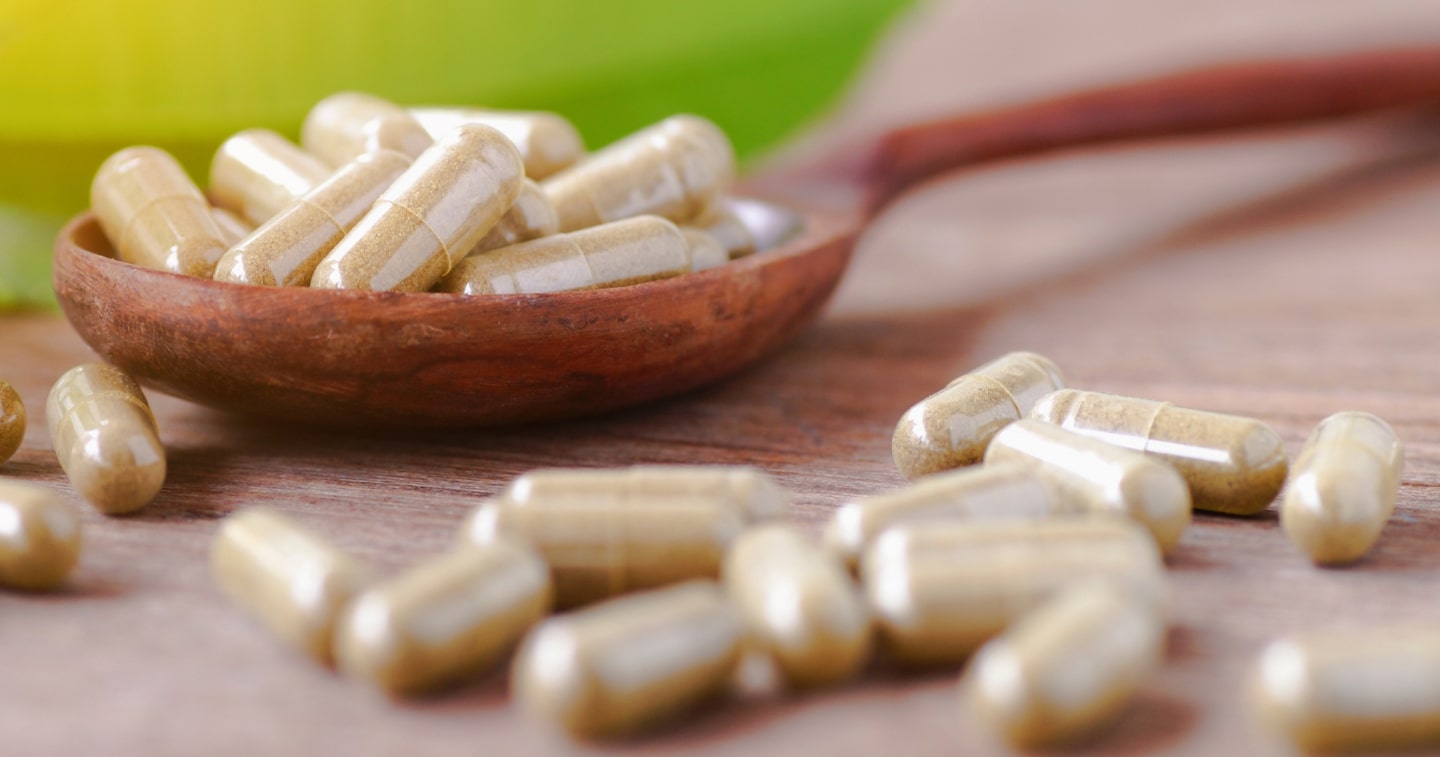How to Manage Stress and Aid in Sleep
Sleep issues and stress are at an all-time high presently, so we wanted to focus on two well-established and researched adaptogenic traditional plant medicines: ashwagandha and holy basil. Both have been used in Ayurveda for millennia, but here in the West, they have steadily been gaining popularity in the last few decades.
What Are Adaptogens?
Although the term adaptogen has been used within alternative and integrative medicine for decades, it has become more of a household name within the general population in recent years. Simply put, adaptogens are specific plant medicines that help you effectively adapt to the effects of stress. A more comprehensive definition is as follows: Adaptogens comprise a pharmacotherapeutic group of herbal preparations used to: increase attention and endurance in fatigue and prevent/mitigate/reduce stress‐induced impairments and disorders related to neuro‐endocrine and immune systems.1
Adaptogens have remarkable, diverse impacts on the human organism as seen in both historical evidence and clinical studies, in turn promoting the resolution of many symptoms, while increasing overall vitality and longevity.
What is Ashwagandha?
Ashwagandha (Withania somnifera (L.) Dunal), commonly referred to as Indian Ginseng, is a small shrub that grows throughout the Asian and African continents. Ashwagandha is also wrapped in animal lore, seeing as it translates loosely to “horse smell” in Sanskrit, which explains why the ancients believed that consuming it would give one the strength of a horse. Because ashwagandha is one of the most broadly studied adaptogens, 50 of its active chemical constituents are comprised of steroidal alkaloids and lactones have been identified.
These are collectively known as withanolides. As a principal botanical plant medicine within Ayurveda, ashwagandha has been traditionally used as a rejuvenating tonic (Rasayana) that enhances muscle strength and overall stamina and endurance, offering a “youthful vigour” to its recipients. That said, ashwagandha is accompanied by solid clinical research in humans as well. Pharmacological studies have confirmed that plant preparation of ashwagandha has anti-inflammatory, antioxidant, anticancer, anxiolytic, and immunomodulatory effects. It has also been shown to influence neurological, endocrine, and cardiovascular activity.2
Because of its impacts on the neuroendocrine system, ashwagandha’s role in stress and anxiety has been well documented, which is why it has been the focal point of many human clinical trials.
In an 8-week, randomized, double-blind, placebo-controlled study ashwagandha was associated with greater reductions in anxiety, morning cortisol, c-reactive protein, pulse rate, and blood pressure in chronically stressed adults.2
Ashwagandha’s Impacts on Cortisol, Stress and Anxiety
Ashwagandha at 600mg has been used in previous studies, but a recent study that used 240mg standardized to 35% withanolide glycosides, offering 84mg per dose, had very notable results. This randomized, double-blind, placebo-controlled trial sought to further evaluate the impact and tolerability of ashwagandha on stress, anxiety and hormone production in 60 healthy, mildly anxious adults (23 females and 37 males) over two months. Remarkably, there was a 41% reduction in generalized anxiety reflected by the Hamilton Anxiety Rating Scale (HAM-A) scores and a 23% reduction in morning cortisol production.
Testosterone increased by 11.4% in the male group, while no significant increases were shown in females. Although not considered statistically significant, there was a 30% reduction in the Depression, Anxiety and Stress Scale-21 (DASS-21) scores reported. The findings on DHEA-S are also noteworthy because there was an 8.2% decrease in those in the ashwagandha group. Although higher DHEA is often associated with increased health and longevity, within the context of stress its elevation may be an indicator of an increased stress response (or HPA activity). For example, increased DHEA-S secretion has been demonstrated in adults following acute stress exposure, and is higher in adults with posttraumatic stress disorder, as confirmed by a recent meta-analysis.2
These data are considerable, seeing as the dosage is less than half of that used in previous trials and what is commonly sold in NHP (Natural Health Product) form. These findings also further confirm ashwagandha’s impacts on stress response modulation, which account for its anxiolytic effects and mood-enhancing properties that aid in achieving quality sleep.
Ashwagandha has also been shown to have antioxidant, anti-inflammatory and immune-modulating properties in previous studies. Furthermore, it not only affects the adrenal glands, but also the thyroid gland. It has been shown to increase serum TSH, T3 and T4 in hypothyroid patients after 8 weeks of use.
There were also no adverse effects reported in the ashwagandha group, further confirming that it is generally well tolerated with a high safety profile. That said, if you take thyroid medications, be sure to speak to your doctor or primary health practitioner before adding it to your regime. Lastly, because ashwagandha has grown in popularity, there are many beverages or powders that are being marketed which have little to no therapeutic effect. This is why it is so important to choose a high-quality, well-formulated product. You can learn more about ashwagandha here.
What is Holy Basil?
Tulsi (Ocimum sanctum L.), commonly referred to as holy basil, is an aromatic shrub that grows throughout the Asian continent and is another principle of Rasayana within Ayurveda. Regarded as the “Sacred Plant of India,” it is believed to be the avatar of the Goddess Lakshmi. Truly holy to the Hindu people, it is planted in special pots placed in courtyards for daily worship.
Also referred to as “The Elixir of Life,” this sacred plant is a powerhouse when it comes to its medicinal properties and there is considerable human data to substantiate its multitude of traditional uses. Holy basil is also believed to promote longevity. Traditionally, tulsi is used as a treatment for anxiety, cough, asthma, fever, indigestion and gastric disorders. Holy Basil is rich in chemical compounds such as eugenol, carvacrol, ursolic acid and rosmarinic acid. These active constituents help to account for its adaptogenic, metabolic, immunomodulatory, anticancer, anti-inflammatory, antioxidant and antimicrobial properties from a clinical perspective.
As with ashwagandha, there are a plethora of studies on holy basil; however, it wasn’t until 2017 that a systematic review of 24 human clinical studies was undertaken to confirm its clinical efficacy and safety. The reviewed studies reinforce traditional uses and suggest tulsi is an effective treatment for lifestyle-related chronic diseases including diabetes, metabolic syndrome, and psychological stress.3
Holy Basil’s Impacts on Stress, Sleep and Anxiety
A randomized, double-blind, placebo-controlled study of 158 adults (69 females and 89 males) looked at different symptoms of stress such as frequent feelings of exhaustion or overwork, frequent sleep and sexual problems of recent origin and avoidance of people. After a total of 6 weeks at a 1200mg dosage, significant decreases in exhaustion, memory impairment, mood, stress and anxiety were observed. Because stress and sexual function are so closely related, the most notable finding was an 87.5% reduction in sexual function disturbance scores. Sleep quality was also greatly improved.
In another trial for generalized anxiety disorder (GAD), 35 subjects (14 females and 21 males) were given 1000mg of holy basil for 60 days, which led to a significant reduction in stress, anxiety and depression scores.
An Herb for Blood Sugar & Pressure, Lipid Profiles and Immunity
Although holy basil is best known for its adaptogenic properties, there has also been incredible research on its impacts on blood sugar, blood pressure, lipid profiles and immunity. Remarkably, out of the 24 human studies in the systematic review, 8 were on blood sugar, 6 on lipids profiles, 6 on blood pressure, and 6 on immune function.
With respect to blood sugar, holy basil was able to dramatically reduce postprandial glucose and fasting blood glucose across all trials.
Fun Fact
The earliest clinical trial on holy basil’s impacts on blood sugar was conducted in 1964. The sample size was very small, comprised of only 10 patients with type 2 diabetes, but showed gradual improvement in fasting blood glucose after 12 weeks.
–––
Highly notable reductions in blood pressure and improved lipid profiles were also observed. In terms of immunity, increases in interferon gamma (IFN-γ), T helper and NK cells were demonstrated in a small, randomized double-blind, placebo-controlled trial.
A 2014 study on asthma patients also showed drastic improvement in VO2 max, resulting in less fatigue. There was also an improved response to viral infections. An older study found that 500mg of holy basil reduced asthma symptoms within 3 days.
These significant findings have also been correlated to holy basil’s anti-inflammatory and antioxidant properties as well. Holy basil was shown to significantly decrease uric acid, confirming its potential role in the treatment of gout. Lastly, holy basil is also very well tolerated with a high safety profile. You can learn more about holy basil here.
Nutrichem—Your One-Stop Shop for Personalized Health Solutions
Whether you need to pick up an NHP or high-end natural body care or require a prescription, stop by. We’d love to serve you! If you are interested in learning more about these powerhouse botanical medicines, book in with one of our naturopathic doctors today and experience the Nutrichem difference.
*This article is not intended to represent medical advice. Please contact a qualified health practitioner if you want to use any natural health products for specific health conditions.
References
https://pubmed.ncbi.nlm.nih.gov/33103257/
https://pubmed.ncbi.nlm.nih.gov/31517876/
https://pubmed.ncbi.nlm.nih.gov/28829155/
https://pubmed.ncbi.nlm.nih.gov/22754076/
https://www.ncbi.nlm.nih.gov/pmc/articles/PMC4296439/
https://pubmed.ncbi.nlm.nih.gov/28400848/
https://www.ncbi.nlm.nih.gov/pmc/articles/PMC3185238/



